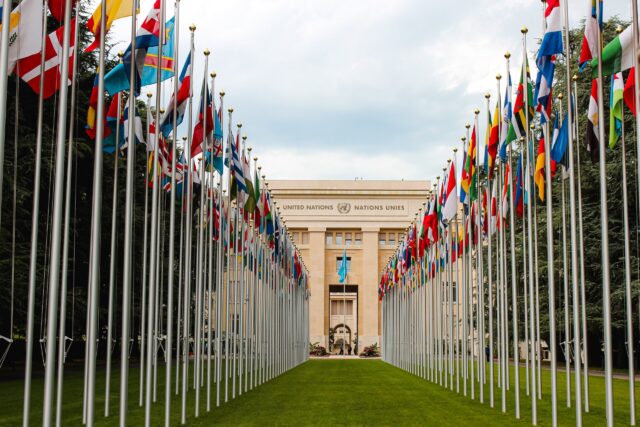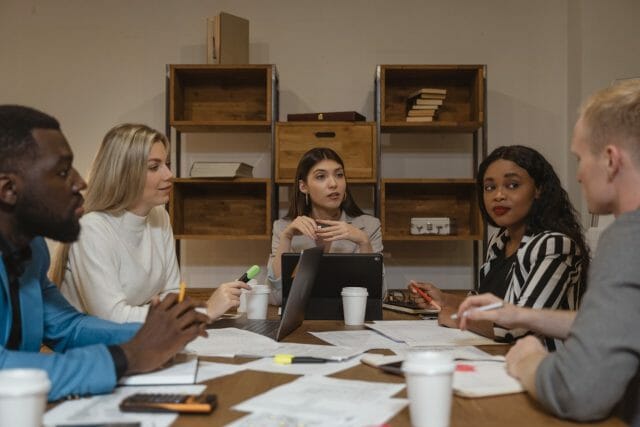Summary of:
Article Around Understanding Social Conflict
Munoz , S. (2019). Developing new identities in social conflicts. Google Books. Retrieved February 11, 2022, from https://books.google.com/books?hl=en&lr=&id=lRowDwAAQBAJ&oi=fnd&pg=PA67&ots=GKRwSHk3He&sig=-rldD78nfIE-TQboxSB8Hn-ALbk#v=onepage&q&f=false
Background & Theory
This article focuses on different view points as to how to resolve social conflict. It further shows how emotions are a guiding light for individuals to make decisions based on their current situation. To further prove this, the studies show that every rational argument is founded on some emotional grounding. Overall, this article explores the biological and cultural nature of social conflict and how our emotions and mindset intertwine into our decision making process.
Research Question(s)
Munoz , S. (2019). Developing new identities in social conflicts. Google Books. Retrieved February 11, 2022, from https://books.google.com/books?hl=en&lr=&id=lRowDwAAQBAJ&oi=fnd&pg=PA67&ots=GKRwSHk3He&sig=-rldD78nfIE-TQboxSB8Hn-ALbk#v=onepage&q&f=false
- How do our emotions play into social conflict?
- What are some ways to de-escalate social conflict?
Methods
Social Nature of Human Beings
It is shown through studies that human beings differ from each other in many aspects, but the one commonality is that we are emotional beings. Research shows that our childhood development strongly dictates how we will behave and communicate with others. In learning more about ourselves, our culture, and upbringing, we are ultimately able to have massive breakthroughs in our relationships with others.
Explanations
When we analyze social conflicts they are normally arguments between individuals that are trying to justify their positions in order to displace the opinions of others. This deeply coincides with relating their opinions and perspectives from their roots, childhood development, and personal experiences. People in our society are a current reflection of their lineage, past history, and experiences. This ultimately highlights what people feel justifies their reasoning in arguments.
Conversations
The conversations we have had in the past dictate our emotions and behaviors for our future experiences. Studies show that if you have grown up in a household where it’s frowned upon to truly share your emotions, individuals learn their whole life that it’s not safe to be vulnerable. This ultimately bleeds into their adult lives and the relationships they are wishing to have. This correlates to social conflicts because those same suppressed emotions carry with them in all settings of their life.
Conflicts
There may be many social conflicts that arise due to cultural differences. This is important to highlight because our upbringing and culture immediately forces us to form deeply rooted perceptions of how we view the world. In order to de-escalate the conflict, we must show mutual respect for each other’s perspectives, communicate openly, and be open minded to new ideologies.

Results
In order to resolve conflict in a permanent way, we must learn as a community to abandon and release negative past experiences and conversations that have affected us poorly. Individuals must generate trust with one another by showing their most authentic selves through numerous conversations. If as a community we are able to understand that emotions are our guiding light, we can show up for one another with more compassion and empathy to de-escalate conflict.
What This Means
- Acceptance and keeping an open mind is key when forming relationships with one another
- If we allow ourselves to have deep reflections in our difficult moments, we are able to resolve conflict with each other and grow as individuals
- The connections and conversations we have with others are based on our emotions, inner feelings, and then guided by our rational reasoning
Final Takeaway
For consultants: Leaning into the client’s emotion will be the key to resolving social conflict.
For everyone: Emotions are what makes us connected as human beings, paying attention to them is what will help us de escalate conflict.








